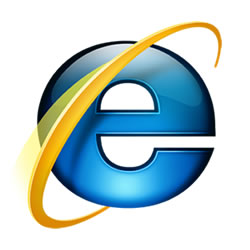A Final Goodbye
What Is a Web Browser?
A web browser, also called an Internet browser or simply a browser, is application software used to access the World Wide Web. Whenever a user requests a web page from a website, the browser retrieves the necessary content from a web server. Afterwards, it displays the page on the user’s device, making the information instantly viewable.
In the Beginning
The first web browser, written in 1990, was simply called WorldWideWeb. At the time, it was the only way to view the web. In addition, it functioned as a browser editor, which meant that it could not only be used to create web pages but also to browse websites. As a result, the name was eventually changed to Nexus to avoid confusion between the program itself and the abstract information space known as the World Wide Web.
In the early 90s, meanwhile, Netscape Navigator emerged as a proprietary web browser. At first, it quickly became the dominant browser throughout the decade. However, by 2003, its popularity had almost disappeared. This shift occurred because Microsoft preloaded Internet Explorer on every computer it sold and, in a strategic move, placed it directly on the start-up page. In other words, Microsoft made it nearly unavoidable for everyday users.
Microsoft Steps In
Microsoft was primarily a software company in those early years. It made money by licensing its operating system to computer manufacturers and by selling programs that worked with that system. For example, its most well-known products include Word and Excel. By the early 2000s, Internet Explorer controlled an incredible 95% of the web browsing market.
Browsers Change
Eventually, most people stopped using Internet Explorer as their main browser with the emergence of Firefox and Google Chrome. Of course, there were still a few die-hard holdouts. Over the years, I had many conversations with clients, letting them know it was time to switch browsers. Internet Explorer was outdated, slow, prone to crashing, and vulnerable to hacks. In contrast, competitors like Google Chrome were fast, secure, and frequently updated.
Internet Explorer (often called IE) served from August 1995 until June 2022. After a slow decline, it finally disappeared, closing out a 27-year run.
Browsers Today
These days, Google Chrome dominates the browser market, holding roughly a 65% share worldwide. Meanwhile, Apple’s Safari follows in second place with about 20%.
Of course, the internet is always evolving. For that reason, there are many other browser options available today. Below is the current top ten list, though it could easily change tomorrow:
• Firefox
• Google Chrome
• Microsoft Edge
• Apple Safari
• Opera
• Brave
• Vivaldi
• DuckDuckgo
• Chromium
• Epic
As always, Grateful Web Services is here to help you get your website on the World Wide Web, or if your website needs updating, we are here to help take the chore off your shoulders. It’s easy to forget that your website is on display 24/7. Even if you aren’t looking at it, potential customers could be.





